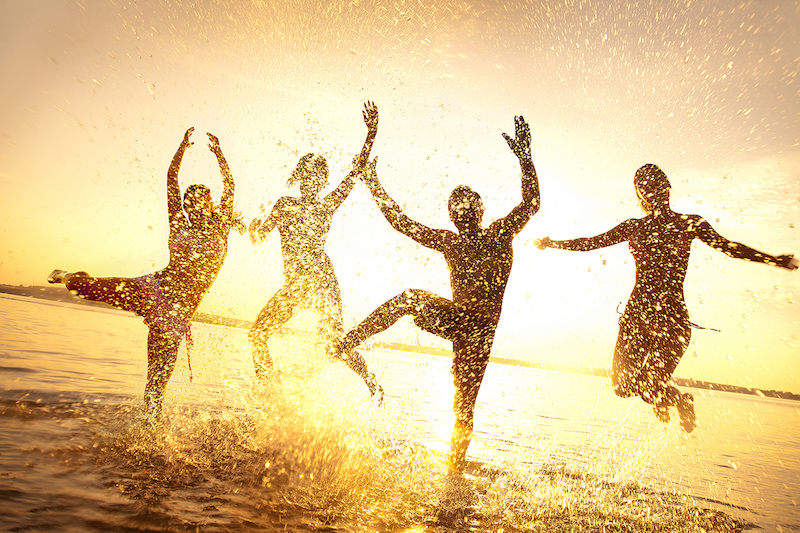
2018
Summer is here and so are the dangers of rising temperatures that can negatively impact the health of individuals of all ages. In fact, according to the Centers for Disease Control and Prevention (CDC) from 1999 to 2010, 8,081 heat-related deaths were reported in the United States. In 5,783 (72 percent) of these deaths, the underlying cause was exposure to excessive heat, and heat was a contributing factor in the remaining 2,298 (28 percent) deaths.
That said, it’s important to make sure you know what to do to avoid and deal with issues like heatstroke and heat exhaustion this summer. Here are a few things to know to help you beat the heat:
-
Knowing the difference between heat exhaustion and heat stroke can be life-saving.
Summer challenges the body’s ability to cool itself. If it can’t cool itself the right way or if too much fluid or salt is lost, heat-related illnesses can happen. Heat stroke and heat exhaustion are both caused by being out in the heat for too long, but each has different symptoms. Most important, heat stroke is dangerous and can lead to serious problems, including death.
Heat exhaustion symptoms include:
- Dizziness
- Fainting
- Fast, weak pulse
- Heavy sweating
- Nausea
- Pale, cool or clammy skin
- Possible muscle cramps
- Weakness
- Vomiting
Heat stroke symptoms include:
- Altered mental state
- Fainting
- High body temperature (above 103°F)
- Hot, dry, red or moist skin
- Loss of consciousness
- Rapid, strong pulse
One or more of the following can also mean that a person is having a heat stroke:
- A throbbing headache
- Confusion
- Dizziness
- Nausea
- Shallow breathing
If you think someone may be suffering from heat exhaustion, place them in a cool, air-conditioned place, put a cool cloth on their head and make sure they drink water. However, if you suspect that someone is suffering from heat stroke, do not take any chances and call 911 immediately. While you wait for help to arrive, do everything you can to cool the person down.
-
Check the weather.
This piece of advice may seem silly as most people check the weather throughout the day. What we mean by this, however, is to pay attention not just to the temperature but also to see if a heat advisory or an excessive heat warning or watch has been issued for where you live.
According to the National Weather Service (NWC):
- A heat advisory is given to an area when the heat index—how it feels outside when the temperature and humidity are added together—is going to be over 100 degrees during the day and won’t drop below 75 degrees at night for at least two days, which are dangerous conditions.
- An excessive heat watch means that the risk of a heat wave has increased, but nobody is sure of when or for how long.
- An excessive heat warning means it is going to be over 105 degrees during the day and won’t drop below 75 degrees at night for at least two days.
If any of the above are in effect, it is a good idea to keep a constant eye on the weather and remain in a cool or air-conditioned place and avoid the outdoors.
-
DO NOT LEAVE children, pets, older or frail people in the car for any period of time during the summer, even if you think it isn’t that warm out.
This cannot be stressed enough. A car sitting in the sun—even with the window cracked—will heat up to a temperature higher than what’s outside very quickly, resulting in hyperthermia (when the body becomes dangerously overheated). In fact, sadly, 746 children have died from being left in a car since 1998. Even in 70-degree weather, the interior of a car can reach 104 degrees in 30 minutes.
-
Avoid heat exhaustion and stroke by taking it easy when outdoors.
While we understand that summer is the best time to go outside and have fun, it must be done carefully. Anything that involves a lot of movement and activity should be reserved for the cooler hours of the day, like early in the morning or later in the evening. Also, keep full exposure to the sun at a minimum, and wear sunscreen to prevent sunburn. A sunburn will make it harder for the body to cool itself properly.
-
Eat light and drink light.
To keep your body from overworking itself while you’re outside, choose easy-to-digest foods to enjoy, such as fruit or salads. Fried or greasy foods will throw off the balance of salt in the body, resulting in potential dehydration.
In addition, be sure to drink plenty of water throughout the day and avoid alcoholic and caffeinated beverages. It’s also important to note that people should drink even when they don’t feel thirsty; feeling thirsty means that the body is already dehydrated. If you’re on a fluid-restrictive diet, speak to a physician first before increasing the amount.
By keeping these tips in mind, you can always have fun in the sun. Be sure to share these tips with friends and loved ones.
 Did you know that your IE browser is outdated?
Did you know that your IE browser is outdated?





